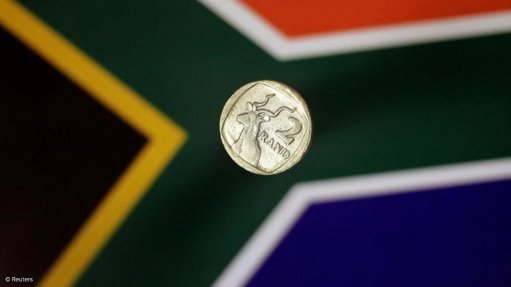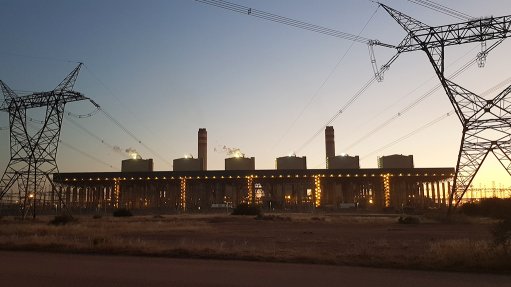IATA has released updated global aviation net zero carbon emissions roadmaps
The International Air Transport Association (IATA), which is the global representative body for the airline industry, has released updated editions of its Policy Net Zero Roadmap and its Finance Net Zero Roadmap. IATA is currently holding its World Sustainability Symposium in Miami, in the US state of Florida.
The two updated roadmaps contain deeper and wider analyses. Together, they came to four core conclusions. One, the air transport industry’s transition to net-zero by 2050 is feasible. Two, the scale of the investments necessary to achieve this are equivalent to those previously required for the creation of other new renewable-energy markets. Three, successfully transitioning the industry is fundamentally dependent on a unity of purpose among policymakers. Four, the time available for creating a joint approach to aviation’s energy transition is rapidly reducing, and every delayed action amounts to a lost opportunity.
“The updated IATA Policy and Finance Net Zero Roadmaps make it clear that decarbonisation by 2050 is possible,” highlighted IATA director-general Willie Walsh. “They also sound a warning bell that, to achieve this, all stakeholders, particularly policymakers, must collaborate more broadly and act with greater urgency. To be successful, we need clear policy and financial frameworks that will support air transportation’s needs in a way that is realistic and coherent with the massive changes that must take place simultaneously in all economic sectors.”
The Policy Net Zero Roadmap highlights that strategic policies have to be properly sequenced. Global collaboration is also required, extending beyond the aviation industry. There can be no one-size-fits-all solution. Policies have to make certain that all countries can take part in a future worldwide sustainable aviation fuel (SAF) market.
The Finance Net Zero Roadmap provides a thorough picture of the investments needed to reach net zero carbon emissions by 2050, and the costs that reaching this target will impose on airlines. The investments required will include capital expenditure (capex) to build new biorefineries to produce the required amounts of SAF. The Roadmap also highlights that the output of these biorefineries will benefit the energy transitions of all industries.
In terms of numbers, the annual average capex required over the next 30 years will, in the best-case scenario, be about $128-billion. In comparison, the equivalent figure for the development of solar and wind energy worldwide, over the period from 2004 and 2022 was, at $280-billion, much higher. The annual transition cost – that is, the extra cost to airlines from buying SAF, or hydrogen, rather than cheaper jet fuel, plus some other costs – was estimated at $1.4-billion for next year, but could reach $744-billion in 2050, which highlights the urgency of the large-scale ramping up of the production of SAF and other green aviation fuels.
“The costs and challenges associated with the energy transition are large, but the opportunities are even greater,” pointed out IATA senior VP sustainability and chief economist Marie Owens Thomsen. “Countries have an opportunity to build new industries in agriculture and energy, and to benefit from the catalytic growth impact of sustainable air transport. To realise the opportunities, we need all minds to unite in this mission, and all policymakers, multilateral organisations, investors, solution providers, and the air transport industry to work together. Such transformative collaboration can pool resources and target meaningful action for greater impact. This is what is needed to deliver a sustainable air transport industry by 2050.”
Article Enquiry
Email Article
Save Article
Feedback
To advertise email advertising@creamermedia.co.za or click here
Press Office
Announcements
What's On
Subscribe to improve your user experience...
Option 1 (equivalent of R125 a month):
Receive a weekly copy of Creamer Media's Engineering News & Mining Weekly magazine
(print copy for those in South Africa and e-magazine for those outside of South Africa)
Receive daily email newsletters
Access to full search results
Access archive of magazine back copies
Access to Projects in Progress
Access to ONE Research Report of your choice in PDF format
Option 2 (equivalent of R375 a month):
All benefits from Option 1
PLUS
Access to Creamer Media's Research Channel Africa for ALL Research Reports, in PDF format, on various industrial and mining sectors
including Electricity; Water; Energy Transition; Hydrogen; Roads, Rail and Ports; Coal; Gold; Platinum; Battery Metals; etc.
Already a subscriber?
Forgotten your password?
Receive weekly copy of Creamer Media's Engineering News & Mining Weekly magazine (print copy for those in South Africa and e-magazine for those outside of South Africa)
➕
Recieve daily email newsletters
➕
Access to full search results
➕
Access archive of magazine back copies
➕
Access to Projects in Progress
➕
Access to ONE Research Report of your choice in PDF format
RESEARCH CHANNEL AFRICA
R4500 (equivalent of R375 a month)
SUBSCRIBEAll benefits from Option 1
➕
Access to Creamer Media's Research Channel Africa for ALL Research Reports on various industrial and mining sectors, in PDF format, including on:
Electricity
➕
Water
➕
Energy Transition
➕
Hydrogen
➕
Roads, Rail and Ports
➕
Coal
➕
Gold
➕
Platinum
➕
Battery Metals
➕
etc.
Receive all benefits from Option 1 or Option 2 delivered to numerous people at your company
➕
Multiple User names and Passwords for simultaneous log-ins
➕
Intranet integration access to all in your organisation


















